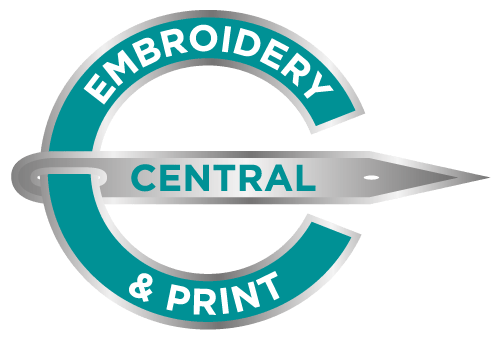Could traditional healthcare workwear be unintentionally harming the planet? It’s alarming to realise that conventional hospital clothing not only contributes significantly to landfill waste but also demands enormous quantities of raw materials. Embracing sustainable healthcare workwear, such as reusable scrubs, can decrease the environmental footprint by over 60%. This crucial shift isn’t just about reducing waste—it’s also about supporting ethical manufacturing processes and aligning with eco-conscious suppliers. As we explore further, the shift to sustainable options presents a compelling case for healthcare providers committed to environmental stewardship.
Understanding the Importance of Sustainable Healthcare Workwear
Traditional healthcare workwear poses significant environmental challenges due to its contribution to landfill waste and its demand for vast quantities of raw materials. The production and disposal of conventional uniforms often involve non-renewable resources and result in high levels of pollution. Additionally, these garments are typically not designed for longevity, leading to frequent replacements and further waste. The environmental impact of traditional workwear is profound, making the shift towards sustainability in this sector crucial.
Sustainable alternatives, such as reusable scrubs, have emerged as a viable solution to these environmental concerns. Life cycle assessments indicate that such eco-friendly options can reduce the environmental impact by over 60% compared to disposable counterparts. These sustainable solutions not only minimise waste but also conserve resources by utilising materials that require less water and energy in their production processes. By opting for these alternatives, healthcare institutions can significantly decrease their ecological footprint while maintaining functional and comfortable attire for their staff.
Ethical manufacturing is another critical aspect of sustainable healthcare workwear. Supporting suppliers who prioritise sustainability ensures that uniforms are produced under fair and safe working conditions, with a transparent supply chain. Choosing ethically manufactured products helps foster social responsibility within the industry, promoting practices that protect both people and the planet. By investing in sustainable workwear, healthcare providers can uphold their commitment to environmental stewardship and corporate responsibility.
Exploring Sustainable Materials for Healthcare Uniforms
Traditional cotton used in medical uniforms is notorious for its environmental drawbacks, primarily due to the significant water consumption and extensive use of pesticides during cultivation. These practices not only deplete vital water resources but also contribute to soil degradation and pollution, impacting ecosystems and communities. As the healthcare industry shifts towards sustainability, it becomes imperative to explore alternatives that mitigate these environmental issues, paving the way for more responsible production practices in uniform manufacturing.
- Organic cotton
- Bamboo
- Tencel
- Recycled polyester
- Hemp
Each of these sustainable materials brings distinct advantages to eco-friendly medical uniforms. Organic cotton is cultivated without harmful pesticides, reducing chemical exposure and promoting biodiversity. Bamboo is a rapidly renewable resource that requires minimal water and no pesticides, offering a soft and breathable fabric. Tencel, derived from sustainably sourced wood pulp, is renowned for its strength and moisture-wicking properties, making it ideal for long shifts. Recycled polyester repurposes existing plastic materials, significantly lowering the demand for virgin resources while providing durability and resilience. Lastly, hemp combines robustness with breathability and requires less water and pesticides than traditional cotton, further enhancing its sustainability credentials.
Healthcare institutions embracing these materials align with broader sustainability goals by reducing their ecological footprint and promoting ethical production practices. By opting for eco-friendly medical uniforms made from these materials, institutions can demonstrate a commitment to environmental stewardship, while also providing staff with comfortable and durable attire. This shift not only supports the well-being of healthcare workers but also contributes to a healthier planet, showcasing leadership in the transition towards sustainable healthcare solutions.
Benefits of Choosing Sustainable Healthcare Workwear
Sustainable healthcare workwear offers significant advantages in terms of durability and comfort, catering to the demanding needs of healthcare professionals. These uniforms are crafted to withstand long shifts and frequent washings without losing their form or comfort, ensuring that staff remain at ease throughout their duties. The use of high-quality materials not only enhances the longevity of the garments but also maintains their appearance and functionality over time, providing a cost-effective solution for healthcare providers.
- Reduced environmental footprint
- Long-lasting and durable
- Cost-effective over time
- Supports ethical labour practices
By choosing sustainable healthcare workwear, providers can benefit from a reduction in their environmental impact. The longevity of these garments minimizes the need for frequent replacements, leading to cost savings and less waste. Moreover, ethical production practices ensure that the uniforms are made under fair conditions, supporting both the welfare of workers and the planet. This commitment to sustainability not only aligns with environmental goals but also enhances the reputation of healthcare institutions as socially responsible entities.
How to Transition to Eco-Friendly Healthcare Uniforms
Transitioning to eco-friendly healthcare uniforms presents several challenges for providers, largely due to existing procurement processes and budget constraints. Many healthcare institutions are deeply entrenched in their current supply chains, which may not readily offer sustainable options. Additionally, concerns about the initial costs associated with sustainable uniforms and ensuring consistent quality standards can hinder the transition. Thus, addressing these challenges requires strategic planning and a commitment to long-term sustainability goals.
To facilitate a smooth transition, healthcare providers can start by incorporating a few sustainable pieces into their existing uniform lineup. Engaging staff in the process is crucial, as it fosters a sense of ownership and encourages feedback on comfort and practicality. Partnering with experienced suppliers, like Mister Uniform, who offer competitive pricing and transparency, can ease the transition by ensuring access to reliable and high-quality eco-friendly attire. Gradually expanding the range of sustainable uniforms over time allows institutions to manage costs effectively while demonstrating a commitment to environmental stewardship.
Choosing reputable suppliers is paramount in the transition to sustainable healthcare uniforms. Suppliers who prioritise innovation in eco-friendly attire and maintain transparency in their sourcing and manufacturing processes can significantly contribute to the success of the transition. By aligning with such partners, healthcare providers can ensure that their uniforms not only meet sustainability standards but also support ethical practices, ultimately promoting a culture of environmental responsibility within the institution.
Highlighting Brands and Suppliers of Sustainable Healthcare Workwear
Selecting the right suppliers is crucial for healthcare institutions aiming to meet their sustainability goals. The choice of supplier not only affects the environmental impact of the uniforms but also reflects the institution’s commitment to ethical practices. Eco-conscious uniform suppliers provide healthcare workwear that aligns with sustainable principles, focusing on reducing waste, conserving resources, and ensuring fair trade practices. By partnering with suppliers who prioritise sustainability, healthcare providers can significantly lower their ecological footprint while supporting a positive brand image.
Mister Uniform stands out as a prominent example of a supplier committed to sustainable practices. They ensure reduced environmental impact by using ethically sourced materials, such as organic cotton and recycled polyester. Transparency in sourcing and manufacturing processes is a hallmark of their operations, allowing healthcare providers to make informed decisions about their uniform purchases. As partners in sustainability, Mister Uniform assists healthcare institutions in transitioning to eco-friendly fashion, providing durable and comfortable attire that meets the rigorous demands of the healthcare environment.
Choosing the Right Supplier
When evaluating suppliers for sustainable healthcare workwear, consider the following tips:
- Certifications: Ensure that the supplier’s products have relevant sustainability certifications, such as GOTS or Fair Trade.
- Transparency: Look for suppliers who provide clear information about their sourcing and manufacturing processes.
- Ethical Practices: Choose suppliers committed to fair labour practices and ethical standards in production.
- Track Record: Assess the supplier’s history and reputation in providing quality sustainable workwear.
By considering these criteria, healthcare providers can select suppliers that not only offer eco-friendly products but also align with their values and sustainability objectives.
Final Words
Shifting to sustainable healthcare workwear plays a crucial role in reducing the environmental impact associated with traditional hospital attire. This transition not only addresses landfill waste but also promotes ethical manufacturing practices. Incorporating eco-friendly materials such as organic cotton and bamboo enhances the sustainability goals of healthcare institutions.
Making informed choices in selecting durable and comfortable uniforms supports ethical labour practices while being cost-effective. As healthcare providers navigate this transition, selecting reliable suppliers is key to achieving innovation in eco-friendly attire. Embracing sustainable healthcare workwear lays the foundation for a more responsible and environmentally conscious future in the industry.
FAQ
What is environmentally sustainable healthcare?
Environmentally sustainable healthcare focuses on minimizing healthcare’s ecological footprint through practices such as reducing waste and implementing energy-efficient processes. It integrates eco-friendly practices in all aspects, including the use of sustainable materials in workwear.
What is sustainably made clothing?
Sustainably made clothing utilises materials and processes that reduce environmental impact. This includes using organic or recycled materials, ensuring minimal resource usage in production, and supporting ethical labour practices to create durable and eco-friendly garments.





